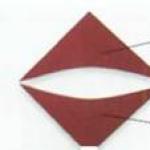The existing problems in men associated with frequent urination quite often cause them a feeling of particular anxiety and even fear. Since not only the process of urination itself is disrupted, but also the sexual function of a man. To prevent the development of a particular pathology, a patient with similar symptoms must urgently consult a urologist for advice and prescription of drug treatment.
Medicines and pills for frequent urination in men, are prescribed only after a comprehensive examination and establishment of an accurate diagnosis.
To prevent the development of pathology, a patient with similar symptoms should urgently consult a urologist.
Root causes of frequent urination
The following diseases of the genitourinary system can be the causes of frequent urination in men:
- Prostatitis;
- Prostate adenoma;
- Kidney problems;
- Infectious processes in the urinary system;
- Cystitis;
- Inflammation of the bladder;
- Diabetes in diabetes mellitus;
- Taking diuretics.
This also includes various types of oncological processes and diseases.
Diagnosis
In case of complaints of frequent urination, in addition to examination, the attending physician, before prescribing a full examination, collects the patient’s medical history, finding out information about his lifestyle, dietary and water regimen, and the intake of certain medicines.
The specialist will also ask questions about the patient’s sex life, pain and pain in the urethra when walking to relieve himself, and possible...
Once all the necessary information about the nuances of the patient’s health is received, the doctor will prescribe an examination to make an accurate diagnosis and clarify the causes of frequent urination.
Our regular reader got rid of PROSTATITIS effective method. He tested it on himself - the result was 100% - complete relief from prostatitis. This natural remedy based on honey. We tested the method and decided to recommend it to you. The result is fast. EFFECTIVE METHOD.
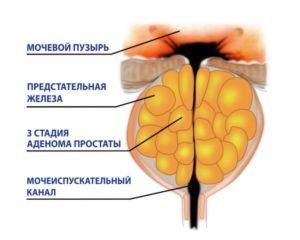
To make an accurate diagnosis and clarify the causes, blood and urine tests are prescribed
Laboratory examination is carried out using:
- Blood test;
- Biochemical analysis;
- Urinalysis.
An ultrasound examination of the genitourinary system is also carried out to check for the presence of stones, inflammatory processes and other pathologies. Detection of infection by using a culture tank and performing a computed tomography scan.
Treatment
How to treat frequent urination in men?
Treatment of frequent urination in men is carried out only after a urologist has prescribed the necessary examination, during which the cause of this pathology and the stage of development of a particular disease are identified.
If the diagnosis has already been established, complex treatment using medications is prescribed.
Indications for drug therapy
To reduce the frequency of urination, drug therapy is necessary. The means that give a positive effect in the treatment of the described pathological symptom are drugs and tablets belonging to the M group - anticholinergics, as well as antidepressant drugs.
The use of these medications is indicated:
- With unstable bladder function;
- Due to existing enuresis;
- In case of bladder detrusor dysfunction;
- For frequent urination in men due to diabetes.
Also, for diabetic diseases, therapy aimed at lowering blood sugar by injecting insulin drugs is indicated.
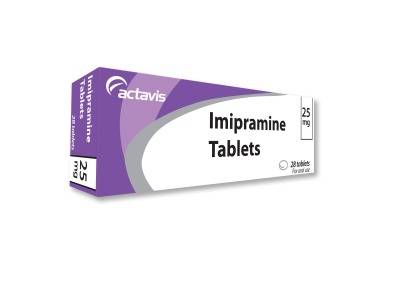
Antidepressants such as imipramine are used in treatment
Mechanism of action of drugs
As already mentioned, it is possible with the use of antidepressants used for stress. Such drugs relax the bladder and this while controlling the involuntary discharge of fluid.
- Duloxetine;
- Imipramine.
Medicines related to M-anticholinergics relax smooth muscles during frequent urination internal organs, in this case it concerns the bladder, and increase its capacity.
These drugs include:
- Oxybutynin;
- Driptan;
- Spasmex.
Frequent urination in men and effective treatment aimed at relieving symptoms caused by atrophic changes in the bladder can be prevented by hormonal tablets in the form of Desmopresin.
The following medications that affect urine acidity may help: to the human body cope with crystalline formations and stones by naturally removing them from the infected organ:
- Tolterodine;
- Detrol;
- Detrol LA.
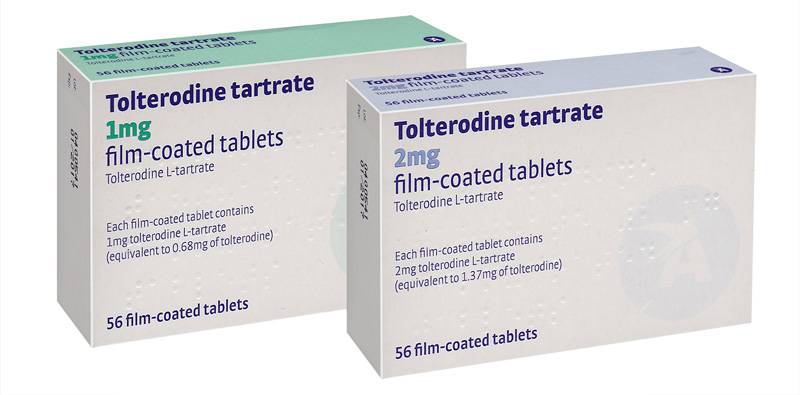
Tolterodine can help the human body deal with crystal formations and stones naturally
The answer to the question of how to cure urinary incontinence in men can be given by a nasal remedy with a hormone called Desmopressin. The drug is especially effective for. The described drug in the form of a spray alleviates the patient’s condition by reducing urine production by the kidneys. The medicine is indicated for use even in childhood.
Frequent urination, as a symptom of any bacterial infections, can be stopped when certain antiseptics and antibiotics are used in the treatment.
Using medications according to instructions
The answer to the question of how to get rid of frequent urination lies on the surface. When a diagnosis is established, the following remedies are used as prescribed by a doctor and according to the instructions:
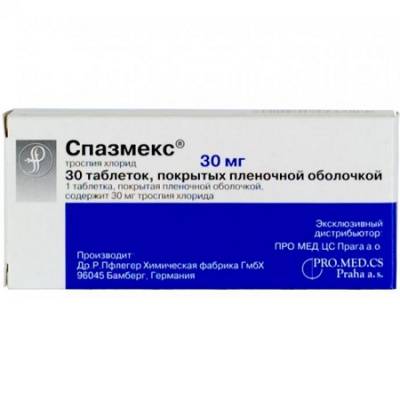
Physiotherapeutic procedures can be used along with drug therapy for frequent urination in men. Exercise strengthen the muscle tissue of the bladder, which determines the patient’s speedy recovery.
Only a specialist can know how to properly get rid of frequent urination by selecting the necessary medications and tablets, and then only after a complete examination of the patient. Therefore, if you have persistent symptoms of pathologies of the genitourinary system and frequent urination, you must immediately make an appointment with a urologist.
Who said that it is impossible to cure prostatitis?
DO YOU HAVE PROSTATITIS? Have you tried a lot of remedies and nothing has helped? These symptoms are familiar to you firsthand:
- constant pain in the lower abdomen, scrotum;
- difficulty urinating;
- sexual dysfunction.
The only way is surgery? Wait, and do not act with radical methods. It is POSSIBLE to cure prostatitis! Follow the link and find out how the Specialist recommends treating prostatitis...
Medicines for frequent urination in men may have different pharmaceutical forms, different periods of use and active ingredients. Only a doctor should prescribe medications and only after a thorough examination of the patient. The effectiveness of therapy directly depends on the root cause of the disorder of normal urination, the advanced stage of the disease and the patient’s focus on recovery.
Treatment of frequent urges in infectious diseases
Most often, an increased number of urinations in males is associated with inflammatory processes that develop in the urinary system when pathogenic microflora enters and activates. Among the diseases that are mainly diagnosed in such cases are: pyelonephritis, urethritis, cystitis. All of them may have different clinical manifestations, form and course, but in any case they require proper therapy. For it to be as effective as possible, the doctor must first find out the real reason inflammatory process: the patient needs to undergo urine and blood tests, have an ultrasound of the pelvic organs and kidneys.
For frequent urination in men, the following remedies are most often prescribed:
- antibiotics;
- uroseptics;
- immunomodulators.
Antibacterial therapy is considered the mainstay for infectious lesions. If it is not possible to find out what type of bacteria needs to be fought, then doctors prescribe broad-spectrum medications. Inflammatory diseases that are accompanied by damage to nonspecific microflora require the use of Furadonin, Fosfomycin, Furagin, Ciprofloxacin, etc.

If the cause of negative changes lies in infection with chlamydia or gonorrheal urethritis, then it is more advisable to use Erythromycin, Ceftriaxone, Ofloxacin, Ciprofloxacin, etc.
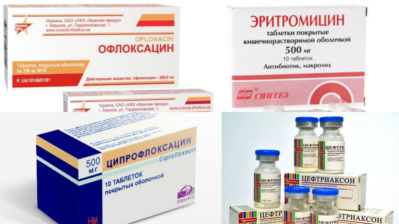
Uroseptics, which are often recommended for inflammatory processes, can quickly relieve the main unpleasant symptoms: itching, pain, frequent urination, etc. They can be of either synthetic or natural origin. In the first case, these are drugs such as Urolesan, Canephron, Fitolysin. In the second case we are talking about using traditional methods, for example, baths with chamomile or sage.
Rather, immunomodulators (immunostimulants) can restore the male body and increase its resistance to pathogens.
Their list includes: Polyoxidonium, Gelon, Ribomunil, Timalin. It won't hurt either vitamin complexes, which ensure rapid restoration of positive microflora.
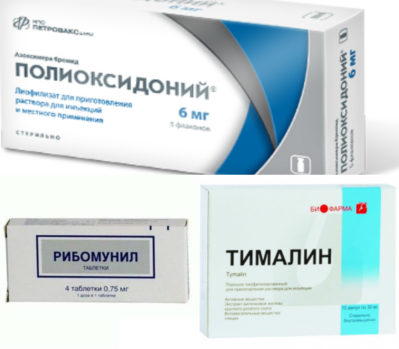
A greater chance of rapid recovery is provided by complex therapy, which includes several drugs from different groups.
Treatment of frequent urination with adenoma
and a feeling of incomplete emptying of the bladder, a specialist may suspect the presence of an adenoma. This disease may not manifest itself and develop for more than 10 years, slowly weakening urine and leading to dysfunction of the genitourinary system. A person is faced with the question: to treat with medication or radically, i.e., surgically. At stages I–II of the disease, doctors usually consider a conservative method of control as the accepted therapy.
A patient with adenoma often has to take a complex of medications throughout his life. All means that are used by men when the prostate compresses the urethra can be divided into 2 large groups:
- antispasmodics;
- drugs aimed at reducing testosterone.
Medicines aimed at relieving spasms, in addition to reducing pain and facilitating urination, combat dysuric syndrome (loss of control over urination). The last task can be achieved thanks to the effect on reducing prostate tone. Among the drugs in this group, preference can be given to Terazosin, Tamsulosin, Silodosin, Doxazosin.
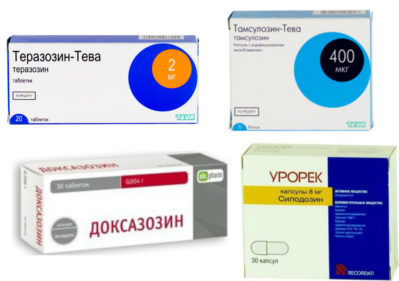
A noticeable result from the use of alpha-blockers is noticed after approximately 2 or 3 weeks of systemic use.
Antispasmodics often cause adverse reactions (headache, decreased blood pressure, dizziness), but their use in adenoma is mandatory.
Treatment with such drugs requires long-term courses, and sometimes for life.
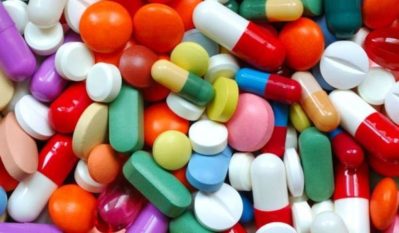
Group 2 drugs should reduce the amount of testosterone, and therefore slow down the growth of the prostate and reduce the number of associated manifestations. The following funds can be distinguished from two more subgroups:
- those that inhibit a certain enzyme - Finasteride, Dutasteride, Cyproterone;
- those that reduce receptor sensitivity - Flutamide, Prostamol, Permixon.
Frequent urination in men can be treated in parallel with antispasmodics and means to reduce the influence of testosterone.
How to deal with frequent urges in other diseases
There are a number of other diseases and pathologies in which normal urination is seriously impaired. So, one of these can be called urolithiasis. Stones put pressure on the urethra or bladder, causing false urges.
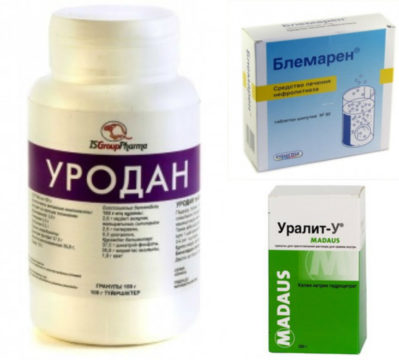
Treatment must be comprehensive and long-term. The most useful tablets in this case are Allozym, Uralit, Blemaren, Urodan, Etamide. Taking into account the salt composition of the stones, the urologist can choose the most appropriate version of the drug.
Neurological diseases accompanied by urinary disorders should be treated with sedatives, nootropics and other drugs aimed at treating the underlying disease.
Along with them, for neurological problems, antispasmodics are prescribed: Papaverine, No-Shpa.
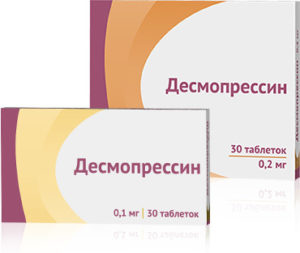 If the cause of such a symptom lies in tissue dystrophy, hormonal drugs must be used. Among the drugs that are considered the most effective is Desmopressin.
If the cause of such a symptom lies in tissue dystrophy, hormonal drugs must be used. Among the drugs that are considered the most effective is Desmopressin.
Patients with diabetes mellitus. It will be possible to prevent the onset of symptoms if you constantly monitor your glucose levels.
Doctors call another reason so-called diabetes insipidus. It occurs in case of a disorder of the endocrine system. The volume of fluid released increases significantly. The optimal treatment option is the use of hormone replacement therapy.
If within 2 weeks the medications taken have not been able to reduce undesirable manifestations, it is worth undergoing a re-examination or changing the treatment regimen.
Folk remedies for normalizing urination
Traditional medicine offers its own methods to combat problematic or too frequent urination.
 Herbal infusions are considered quite effective. St. John's wort, bear's ears, nine-leaved grass and corn silk are ingredients that are sold in every pharmacy. After pouring boiling water over these herbs, let them steep for at least 2–3 hours. By taking this medicine, we can strengthen the muscles of the bladder and overcome some pathological microorganisms.
Herbal infusions are considered quite effective. St. John's wort, bear's ears, nine-leaved grass and corn silk are ingredients that are sold in every pharmacy. After pouring boiling water over these herbs, let them steep for at least 2–3 hours. By taking this medicine, we can strengthen the muscles of the bladder and overcome some pathological microorganisms.
Another infusion can be prepared from carrot and parsley leaves, as well as from cherry leaves, currants and corn hair (stigma).
For neuroses that lead to frequent urination, traditional medicine experts recommend soothing teas, in particular from mint, lemon balm, as well as chamomile and thyme. A greater effect can be achieved if honey is added to herbal teas instead of sugar. Men with damage to the gastric mucosa should not abuse such drinks.
A folk medicine based on rosehip helps to put the urinary system in order. It’s easy to prepare: pour boiling water over the crushed pieces of the fruit.
Green and black tea with milk help reduce inflammation. But coffee and coffee drinks are strictly prohibited, because they are diuretics.
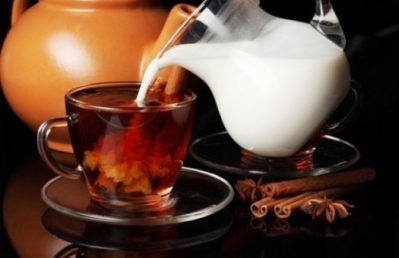
A compress of grated fresh onion should be applied to the bladder area for several hours. An external folk medicine of this type relieves spasm and ensures normal urination.
Despite the fact that urinary disorders are quite unpleasant symptom, in most cases it can be successfully overcome. The main thing is timely examination and consultation with a specialist.
Frequent urination in men without pain is a fairly common symptom of various diseases of the urinary system. If a person’s genitourinary system is healthy, then he will urinate 5 to 6 times a day. More frequent trips to the toilet indicate the development of pathology.
Causes of pathology
There are many pathological conditions and diseases that lead to frequent urination in men. If this condition occurs for only one day, then the person does not need to do anything, as it will go away on its own without medical intervention. In this case, the reasons for frequent urination in men are associated with large amounts of fluid intake, as well as if the patient drinks drinks that have a diuretic effect. Frequent urge to urinate in men occurs as a result of chills, the cause of which is hypothermia. This condition also occurs if a person spends a long time in a room with a low temperature.
A weakened immune system can cause a pathological condition. It occurs against the background of congestion in the pelvic area, the cause of which is a sedentary lifestyle. Stressful situations and nervous strain cause frequent night urination in men. The older a person is, the more often he visits the toilet. This is explained by the fact that the skin loses its elasticity and the tone of the internal organs decreases. As a result, the walls of the bladder become less elastic, which leads to a frequent urge to urinate in men.
The occurrence of a pathological condition can be observed against the background of various diseases:
- Prostatitis;
- Prostate adenomas;
- STD;
- Urolithiasis;
- Diabetes mellitus;
- Pyelonephritis;
- Urethritis;
- Cystitis;
- Detrusor hypertonicity.
The occurrence of frequent urination in men without pain, the causes of which may be different, requires mandatory examination by a doctor. Only a urologist can determine the cause of the pathology and prescribe effective treatment.
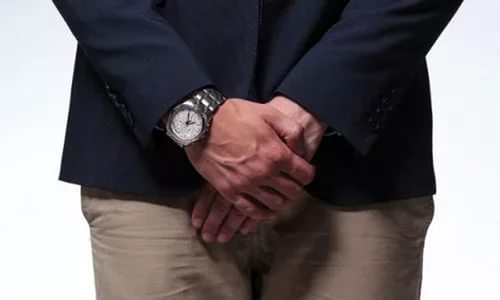

Itching and discharge
Associated symptoms
Before treating frequent urination in men, it is necessary to identify additional symptoms that may indicate the development of a specific disease. These include:
For the treatment and prevention of problems with the menstrual cycle (amenorrhea, dysmenorrhea, menorrhagia, Opsomenorrhea, etc.) and vaginal dysbiosis, our readers successfully use a simple advice from chief gynecologist Leila Adamova. After carefully studying this method, we decided to bring it to your attention.
- Temperature. This symptom may indicate the development of prostatitis. Men complain of frequent bowel movements at night and chills. As a result, the patient lacks sleep and becomes irritable. The same symptoms can appear with an infectious kidney disease.
- Dry mouth. This symptom accompanies frequent urination in men with diabetes. There is a need to constantly take liquid and, as a result, empty the bladder. With this disease, patients complain of weakness, fast weight loss, good appetite, which is not accompanied by a feeling of fullness.
- Discharge from the urethra. Patients' urine may be cloudy. In some cases, purulent discharge appears. These symptoms indicate the development of cystitis. With inflammatory processes in the bladder, the appearance of these signs can also be observed. Patients also note the presence of pulling pain in the lower abdomen.
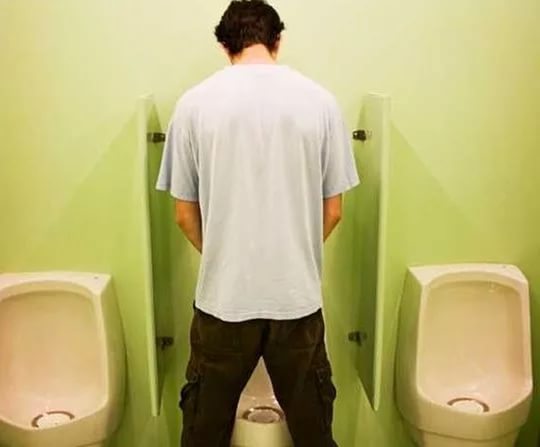
If the patient has one of the signs permanently, and nocturia does not go away, then this indicates the development of a pathological process. A nephrologist or urologist diagnoses diseases of the bladder and kidneys. Treatment of the prostate is carried out by a urologist or andrologist. If you have diabetes, the patient should consult an endocrinologist.

Dermatitis
Features of treatment
The choice of therapeutic method to combat the pathological condition directly depends on the characteristics of the disease. In most cases, patients are prescribed tablets that are characterized by a complex effect.
If a man is diagnosed with prostatitis, then he must take antibiotics - Amoxicillin, Roxithromycin, etc. To enhance the effect of their influence, doctors prescribe physical procedures, which include prostate massage. A man is recommended to adjust his lifestyle. For prostatitis, it is necessary to take vitamin and mineral complexes, as well as immunomodulators. With proper treatment of prostatitis, remission will occur, which will eliminate the pathological process.
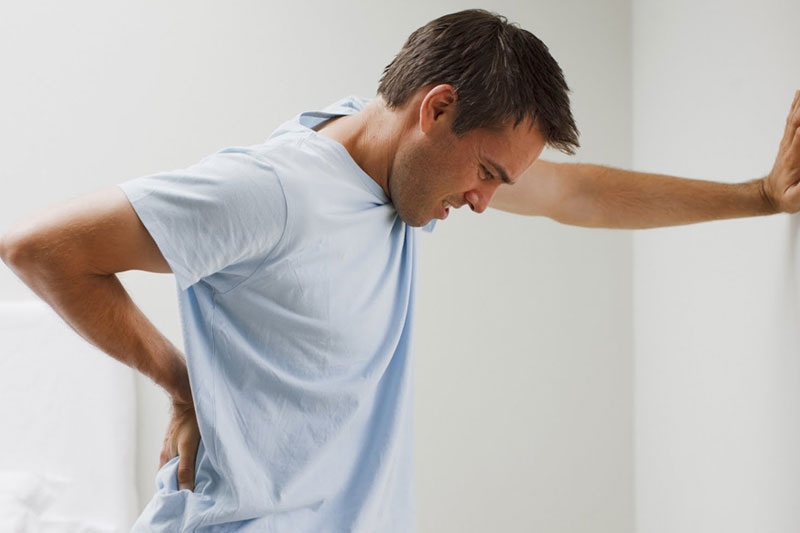
The choice of treatment method for the appearance of prostate adenoma directly depends on the size of the tumor. For minor adenoma, treatment is carried out using traditional drugs, the action of which is aimed at relaxing the muscles of the urethra. In most cases, patients are prescribed alpha-blockers:
- Tamsulosin;
- Doxazoline;
- Terazonin.
- Palina;
- Augmentina;
- Furamaga;
- Ceftibuten.
- Hot compress. This remedy is very helpful for a variety of diseases. It requires taking plastic bottle and fill hot water. The bottle is wrapped in a terry towel and placed between your legs at night. Most patients notice relief within three days. This is the optimal period for treating frequent urination using this method.
- Centaury and St. John's wort. With the help of these herbs you can eliminate unpleasant symptoms as quickly as possible. short time. In order to obtain the medicine, you need to take crushed dry herbs in the same quantity. 10 grams of the resulting mass is poured into a glass of boiling water. After 10 minutes, the infusion must be filtered and taken orally. The medication must be taken three times a day for 7 days. After a ten-day break, the course of treatment can be repeated.
- Onion. To prepare the medicine, take one medium-sized onion and pass it through a press. You can also grate it on a fine grater. The resulting mass is wrapped in cotton cloth and applied to the lower abdomen. The compress can be fixed in any way. The medicine must be kept for two hours. After removing the compress, it is necessary to carry out hygiene procedures.
- Carrots and parsley. The medicine is prepared from the above-ground part of the plant. It must be finely chopped or crushed in a blender. 10 grams of the resulting mixture must be poured with a glass of boiling water and left for 15 minutes. You need to drink the folk remedy four times a day, one tablespoon. The medication must be taken 30 minutes before meals. To treat candidiasis, the infusion is used for hygiene procedures.
- Field chamomile. The drug can be used not only internally, but also externally. In the first case, a decoction of chamomile is used. To prepare it, you need to take 10 grams of plant flowers and brew them with 100 milliliters of boiling water. The folk remedy is infused for an hour. After this, the infusion must be strained and drunk. Eating is allowed only after half an hour. The patient should take the medication every 5 hours. The course of treatment is 10 days.
- Field horsetail. To prepare a folk remedy, you need to take 100 grams of dried herb, which can be purchased at a pharmacy, and pour 0.5 liters of boiling water. The medicine must be infused for one hour. After this, the broth is filtered and used for taking a bath. Its temperature should be 37 degrees. It is recommended that the patient take a bath for half an hour. If necessary, you can add hot water. Treatment of frequent urination with this method should be carried out for at least 10 days. After this, you need to take a break for 30 days and repeat the course of treatment again. Traditional medicine copes quite well with eliminating the pathological condition.
- copious or scanty discharge with clots
- pain in the chest and lower back
- pain during sex
- bad smell
- discomfort when urinating

Do you want a child? A simple method for quick pregnancy of our ancestors
Patients are also advised to take 5-alpha reductase inhibitors - Dutasteride, Phenasteride. If the size of the prostate adenoma is large enough, then the patient is prescribed surgical treatment - transurethral resection.
Cystitis is treated with the use of antibiotics - Nolitsin, Monural, etc. The patient also needs to use nitrofuran drugs. Diuretic drugs – Furosemide, Veroshpiron – are quite effective in treating the disease. This disease is accompanied by pronounced pain, which is relieved by the use of antispasmodics - No-shpa, Baralgin. In the treatment of cystitis, traditional medicine is often used, which is characterized by the presence of diuretic and anti-inflammatory effects. Folk remedies are most often prepared using sage, lingonberries, chamomile, and corn silk. For treatment urolithiasis drug therapy must be used. Crushing stones can be carried out using a special apparatus. With the development of an inflammatory process in the kidneys, the use of antibiotics is necessary:



Write down the recipe. At any age! You just need to drink 1 glass on an empty stomach...
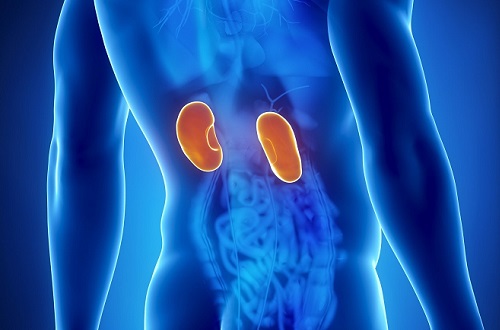
Herbal and dietary therapy are also indicated for the development of this disease. Traditional medicine can be used to enhance the effect of these medicinal measures. If a man has diabetes, he needs to change his lifestyle. In this case, the person will be treated daily. If a person has overweight, then he needs to lose weight by following diet No. 9. Also, a man needs to completely give up bad habits.
Patients are prescribed sulfonylurea derivatives - Glimepiride, Glibenclamide, etc. To stabilize their condition, they are prescribed biguanides – Metformin. Patients must take alpha-glucosidases in the form of Acarbose or Miglitol.
Absolutely all diseases that are accompanied by frequent urination have a negative impact on a man’s health. That is why he needs timely treatment of pathological conditions.

NMC and uterine bleeding
Traditional medicine
In the treatment of frequent urination, traditional medicine can be used, which are not only effective, but also safe for a man’s health. Most often used for the preparation of traditional medicines:

To avoid side effects, it is necessary to first determine contraindications to the components of the drug.
Preventive measures
To avoid the occurrence of a pathological condition, a man must follow the rules of prevention every day.
Sexual intercourse with new sexual partners must be protected. For this purpose, contraceptives are used. This will provide protection against sexually transmitted diseases.
A man must follow the rules of personal hygiene every day. Proper nutrition is a mandatory preventive measure. It eliminates the possibility of kidney stones. Abuse of alcoholic beverages during the prevention period is strictly prohibited.

Frequent urination can occur due to a man’s unhealthy lifestyle or as a result of the development of various diseases. Their presence can only be determined after appropriate diagnostics. Treatment of diseases directly depends on the characteristics of their development.
And a little about secrets...
Have you ever suffered from problems with Menstrual cycle? Judging by the fact that you are reading this article, victory was not on your side. And of course you know firsthand what it is:
Now answer the question: are you satisfied with this? Can problems be tolerated? How much money have you already wasted on ineffective treatment? That's right - it's time to end this! Do you agree? That's why we decided to publish an interview with the chief gynecologist of Russia Leila Adamova, in which she revealed the simple secret of normalization menstrual cycle. Read the article...
Frequent urination that is asymptomatic, or vice versa, accompanied by painful sensations, is a reason to consult a doctor and begin immediate treatment.
The causes of frequent urination can be various factors that affect the symptoms of the disease. The very first signs are: visiting the toilet more than 6 times a day, difficulty urinating, frequent urges at night and a feeling of incomplete emptying (a small amount of urine coming out at a time).
How to deal with frequent urination in men, and what treatment methods exist for this at home, we will consider further.
Reasons for frequent urges
The main reason for frequent urination in men is considered to be the presence of a genitourinary infection. In this case, the male genitals are attacked by various fungi, viruses and bacteria, infecting one or another area. However, there are other aspects to the appearance of this disease.
The main reasons for frequent urination are:
- Prostatitis. During the course of this disease, even at the initial stage, nerve receptors are irritated. This is accompanied by itching, burning and frequent urge to go to the toilet.
- Prostate adenoma. In men, this disease is accompanied by severe compression of the urethra, and as a result, its dysfunction. In this case, going to the toilet becomes difficult and painful - in order to defecate, the man needs to make some effort.
- Cystitis. Despite the fact that the disease is typical for the female half of society, young men are often susceptible to it. Due to the lack of proper hygiene, a man faces the problem of frequent urination, as well as the appearance of unpleasant, painful sensations in the groin area.
- Pyelonephritis. Usually occurs in a chronic form. But, with inflammation of the bladder and use large quantity liquids (within daily norm), may cause increased urination.
- Urethritis. The disease is a process of inflammation of the urethra. As a result, the man feels unwell, pain and a frequent desire to defecate.
- . Frequent trips to the toilet, which occur day and night. They can be painless. This disease is not considered an infection or inflammation, but it is still worth seeing a doctor.
- A number of diseases associated with metabolic disorders(thyroid problems, diabetes mellitus and diabetes insipidus, etc.).
- Sexual infections which are accompanied by inflammation, itching and burning:
- Chlamydiasis;
- Trichomoniasis;
- Gonorrhea;
- Hepatitis C;
- Papillomoviruses;
- Herpes and other infections that cause frequent urination.
It is important to note that many sexually transmitted infections are asymptomatic. At an early stage, a man feels a frequent painless urge to urinate, but nothing more. If you do not pay attention to this factor and do not eliminate the problem, the disease will begin to progress and require more serious treatment.
Symptoms
The main symptoms of frequent urination in men are:
- excretion of a small amount of urine;
- severe sleep disturbance (you wake up several times a night);
- weakness;
- emptying, which is accompanied by pain and discomfort.
It is important to note that frequent urge to go to the toilet is not only typical during the daytime. Frequent urination in men can occur both during the day and at night.
Frequent urination at night
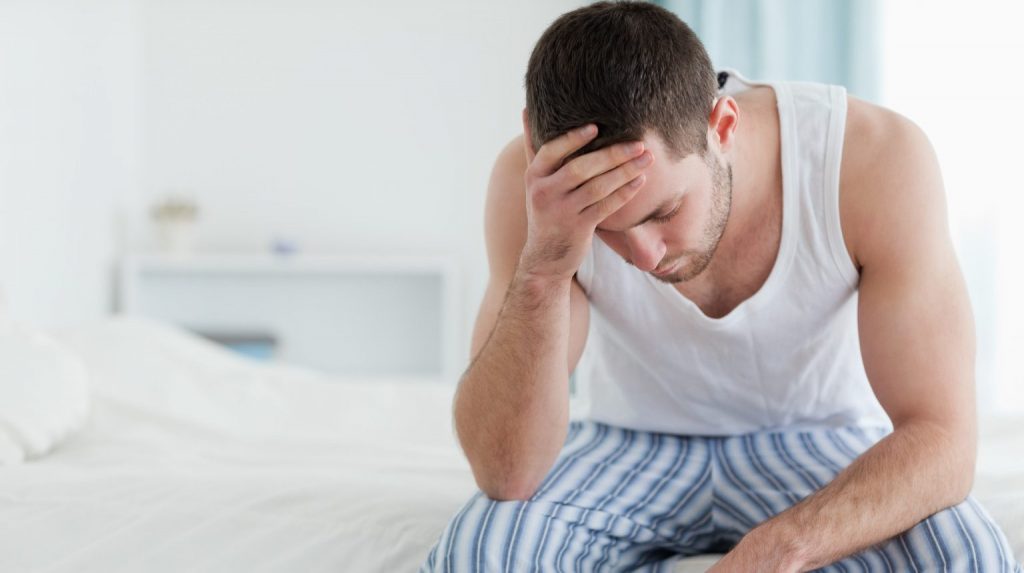
Frequent urination in men at night can be caused by various factors. For example, as a consequence of the use of certain medications or as a cause age-related changes occurring in the body.
The reasons for constant urination at night may be the following:
- Overactive bladder. This condition usually leads to urinary incontinence and weakening of the urethra. The development of increased bladder activity is usually associated with diseases of the central nervous system (brain and spinal cord injuries, strokes, pathologies, tumors, Alzheimer's and Parkinson's diseases, etc.)
- Pathology and age-related changes in the body. Older people may experience a frequent urge to urinate at night without pain. This occurs due to spasms of the muscles of the urethra and loss of their elasticity. The walls of the bladder become thicker, and the production of healthy cells in the kidneys decreases, causing urine to become concentrated and excreted in small quantities.
- Also, frequent urination in men at night can be a consequence of various diseases and hormonal changes in the body, or it can be natural.
Frequent urination without pain
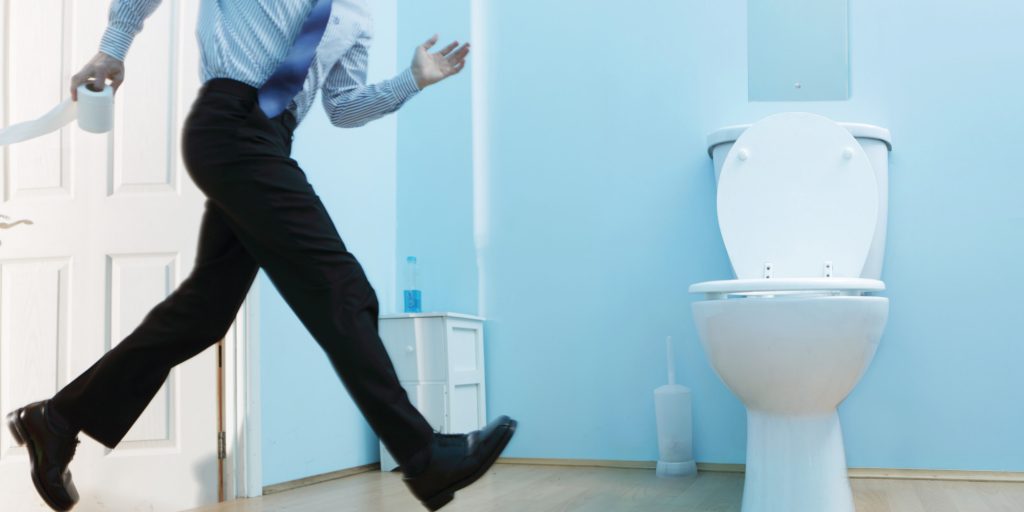
Frequent urination, which occurs without pain or discomfort, may be a normal physiological phenomenon. In some cases, experienced stress, neuroses, anxiety, drinking too much or hypothermia can provoke increased work of the genitourinary system, and as a result, constant trips to the toilet.
Frequent urination may be natural. It can be caused by drinking plenty of water, using various medications or folk remedies that provoke excretion excess liquid from the body.
Most often, active toileting in many cases is of a different nature. The release of urine may not be accompanied by painful sensations. Frequent urge to urinate in this case indicates the presence of a number of infectious diseases. Therefore, it is so important to seek advice from an experienced doctor in the early stages.
How to treat?
Frequent urination in men, depending on the symptoms, can be treated at home with both pharmaceutical preparations and the use of various folk remedies.
It is important to pay attention to the symptoms of the disease and begin immediate treatment. Below we will present methods of treatment with alternative medicine, as well as ways to eliminate the disease using traditional drugs.
Traditional methods of treatment

Frequent urination in men, which is painless, can be cured traditional medicine. The use of decoctions, tinctures and various teas will help overcome the disease in a short period of time.
Among the folk remedies for reducing urges are the following:
- using dried currant, lingonberry or cherry leaves;
- using corn hairs or onion peels at home;
- infusion of centaury, chamomile, sage, St. John's wort;
- decoctions and teas based on plantain or marshmallow leaves;
- A decoction of onion peels is considered an excellent remedy.
Decoctions are prepared at home using various herbs and plants. Dry leaves are steamed and infused for several hours. They are consumed for 5-6 days, 3-4 times a day.
Folk recipe No. 1 from birch buds
- For the infusion you will need: birch buds 1 tsp per glass of boiling water. It is necessary to let it brew for 2 hours. Take the decoction 3 times a day after meals.
Folk recipe No. 2
- For a healing infusion, you need to take dried St. John's wort and yarrow flowers in the amount of 1 tsp per glass of boiling water. Brew according to the same scheme, let it brew. It is recommended to take the decoction as tea.
Recipe using mint No. 3
Another popular remedy that relieves symptoms of frequent urination is mint infusion. To do this, take 20 g of dry peppermint and pour 0.5 liters of boiling water. Place in a water bath and boil for 7-10 minutes. Next, let it brew for 1 minute. Drink 3 times a day. Course 10 days.
Recipe using elecampane No. 4
An excellent remedy for treating the disease is the use of elecampane roots. To do this, you need to take two tablespoons of crushed elecampane root and pour a glass of boiling water. Place in a water bath and simmer over low heat for 20 minutes. Let it brew for 4 hours, then strain. Drink 50 ml 3 times a day.
Folk remedy No. 5
- For frequent urination, men are recommended to drink a drink made from black poplar buds. 2 tbsp is poured with 0.5 liters of boiling water and left for several hours.
The decoction must be consumed in the same way.
Folk remedy No. 6 based on vegetables
- To prepare, you will need a bunch of fresh parsley and carrot tops. All ingredients are chopped. Proportion: 1 tbsp pour 0.5 liters of boiling water. The decoction should be infused for two hours. Take the prepared infusion 4 times a day, 30 minutes before meals.
If you use this healing infusion for a week, the problem of frequent urination will be solved. This drink will help both in the absence of painful symptoms and as a prophylactic during severe stages of the disease.
- If frequent urination is a consequence of kidney disease, it is useful to use folk remedies based on corn silk, St. John's wort, and an herb called Bear's Ears. The herb should be poured with boiling water, allowed to brew for a while, and drunk instead of tea at home.
If the disease occurs without pain, the use of folk remedies is an excellent way to cure it. For painful sensations, it is better for a man to use folk remedies as an addition to drug treatment.
Traditional medicine: list of drugs
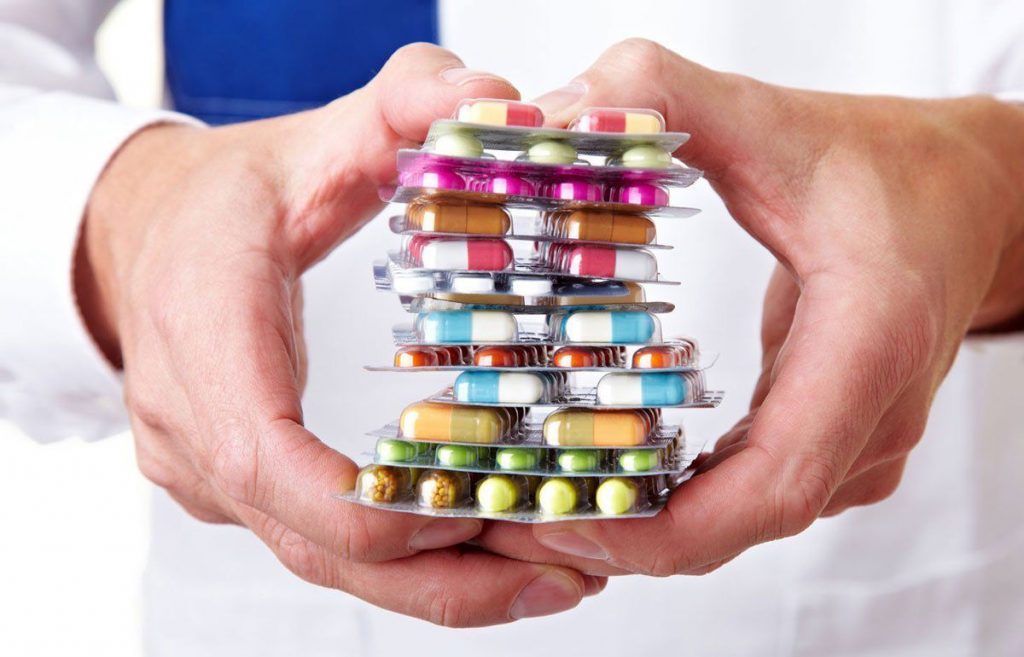
The drug course of treatment for advanced stages of the disease should be discussed with a doctor. It is not recommended to self-medicate in the presence of pain and malaise. It is important to get rid of the problem at the inception stage.
Before choosing a course of treatment, you need to see a urologist and undergo diagnostics. It is important to identify the cause of the ailment so that the treatment is selected correctly and brings a positive result.
As a rule, based on the results of the survey, The doctor prescribes drugs in the form of tablets.
If an infection is detected, the doctor will prescribe antibiotics. They are the main means of treating infectious diseases affecting the genitourinary system. Pills there may be from different groups of antibiotics depending on the type of infection that affected the body:
- Gentamicin;
- Kanamycin;
- Ceftriaxone;
- Amoxiclav;
- Tetracycline;
- Sumamed;
- Norfloxacin;
- Ciprofloxacin.
If the process of urination occurs without pain, but the patient complains of an increase in the number of visits to the restroom, the doctor may prescribe antidepressants:
- Duloxetine;
- Imipramine.
The tablets have a relaxing effect on the bladder and help solve the problem of urinary incontinence.
Medicines from the group of antispasmodics:
- Oxybutynin;
- Driptan;
- Spasmex.
They will help relax the muscles of the bladder walls, relieve spasm, helping to increase its volume.
Elderly men can receive treatment based on hormonal drugs such as Desmopresin. It prevents the development of atrophic abnormalities of the bladder that appear as a result of age-related changes.
There are medications that remove stones from the bladder ducts in a natural way:
- Tolterodine;
- Detrol.
The tablets change the composition of urine, thereby promoting the removal of stones.
When you feel a burning sensation in the process of urination, discomfort, the doctor may suggest:
- Computed tomography, examination of the kidneys, bladder, prostate;
- Digital rectal examination of the prostate;
- Take a blood test to calculate antigens, a general blood and urine test;
- Examination for the presence of infections in the genitourinary system;
- Urofluometry.
In the presence of certain formations, for example, adenoma, the doctor may prescribe medications:
- Cernilton;
- Vitaprost;
- Prostatilen;
- Prostamol Uno;
- Permixon;
- Prostagut Forte;
- Prostaplant;
- Alaf;
- Avodart;
- Prostalamin.
Drug treatment for frequent urination in men may include not only pills, but also folk remedies, massage and gymnastics.
Important tips in the treatment of frequent urination in men are:
- Avoiding hypothermia;
- Avoid eating spicy and highly salty foods;
- Avoidance of stress, neuroses and anxiety;
- Maintaining a healthy sleep schedule;
- Exclusion of alcoholic beverages;
- Maintaining hygiene;
- Bladder training (Kegl exercises intended for men);
It is important to note that frequent urge to go to the toilet is a certain signal for a man. If you feel that the disease is progressing, you must consult a doctor and begin immediate treatment.
If there is such a pathology as frequent urination in men, treatment and tablets as effective remedy Therapies are selected strictly individually. Choice medicines depends on the characteristics of the disease and the susceptibility of the patient’s body. An increased number of bladder emptyings is evidence of one of many diseases that impair the functionality of the urinary system. In most cases, this is an inflammatory process, infection or tumor development. The prescription of tablet drugs is carried out after diagnostic measures have been carried out and an accurate diagnosis has been made.
The genitourinary system of the stronger half of humanity is distinguished by a rather complex organization, and its peculiarity is the close interconnection of all organs. Even if one of them is slightly damaged, the disruption of its functionality affects the operation of the entire system. Tablets for frequent urination in men help restore not only health and self-confidence, but also normal sleep, get rid of irritability and anxiety.
A change in the frequency of urination cannot be called a separate disease; it is rather a symptom any illness that requires prompt and comprehensive treatment. This condition can be treated using tablet drugs using a conservative method, and such therapy is carried out only after a detailed laboratory and instrumental examination. The choice of the most effective product, produced in tablet form, is based on its results.
There are several reasons why men visit the toilet more than 5-6 times a day:- urinary tract infection (urethritis);
- inflammation of the prostate gland;
- prostate adenoma;
- malignant neoplasms;
- STDs (sexually transmitted diseases);
- hyperglycemia;
- overactive bladder, rapid filling and incomplete emptying.
Having determined the reason for the change in the number of urinations per day, the doctor is able to choose the most effective drug for conservative treatment. For frequent urination in men, treatment with tablets is carried out strictly as prescribed by the doctor, and all therapeutic measures are aimed at eliminating the cause of the development of the pathology.
Features of therapy
Unlike frequent urination in women, this pathology in the stronger sex can occur without pain. And this is a consequence not only of age-related changes, but also of an unhealthy lifestyle, in which men move little due to the characteristics of their professional activities, and abuse alcohol-containing drinks. In this case, ailments associated with congestion in the pelvis develop, and they need to be treated with the help of special medications that activate the blood circulation process.
A diagnosed prostate adenoma or a detected malignant tumor requires a different approach and other therapeutic measures.
If, with frequent urination in women, patients require the help of a gynecologist or urologist, then men need treatment for a disease that causes a violation of the frequency of urination from a specialist who can provide full-fledged effective assistance and prescribe adequate treatment:- in case of hyperglycemia, you must consult an endocrinologist;
- Prostate diseases are treated by a urologist and andrologist;
- impaired renal function that causes frequent urge to urinate is treated by a nephrologist;
- inflammation of the bladder and urethra - urologist.
If frequent urination in women can be caused by a physiological process (the development of pregnancy and the pressure of the growing uterus on the bladder), then the cause of the frequent urge to urinate in men is some disease.
The peculiarity of therapy is that in most cases patients are prescribed medications that have a complex effect. However, with a diagnosed inflammatory process in the prostate gland, urethra or bladder cavity, it is impossible to do without prescribing antibacterial drugs.
Prostate adenoma can be treated only after the exact size of the tumor has been determined. The patient is prescribed drugs that have a relaxing effect on the muscles of the urethra.
For severe inflammation, accompanied by pain and burning in the urethra, a medicine with an anti-inflammatory effect is needed.
The method and course of treatment for frequent urination in men is chosen by the doctor who will treat the patient. Which specialist the patient will be referred to depends on the characteristics of the disease.
The choice of medications depends on the decision of the attending physician: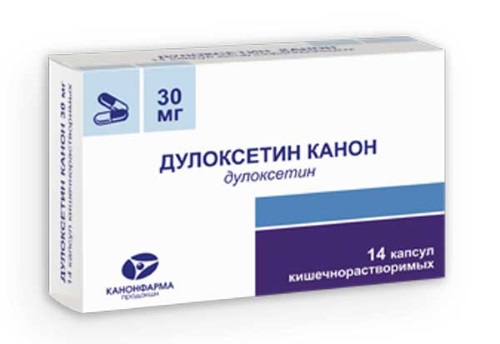
- If urination becomes more frequent due to emotional imbalance in stressful situation, then therapy is carried out with the help of antidepressants. They can have a relaxing effect on smooth muscles, helping to increase the volume of the bladder and reducing the frequency of the urge to empty it. This could be Duloxetine or Imipramine.
- In case of inflammation, it is necessary to take medications that eliminate the pathological process. Oxybutynin, Driptan, Spazmex are famous for their high efficiency.
- Age-related changes in the walls and muscles of the bladder are easier to tolerate thanks to the prescription and use of hormonal medications such as Desmopressin.
- One of the most common causes of frequent urination in men is the presence of stones and sand in the bladder. Detrol or Tolterodine will help deal with crystals, facilitate their removal and empty the bladder cavity.
After making a diagnosis and conducting an examination, the specialist will prescribe uroantiseptic and antibacterial agents, the use of which in the correct dosage will speed up and facilitate the removal of pathogenic bacteria from the patient’s body.


